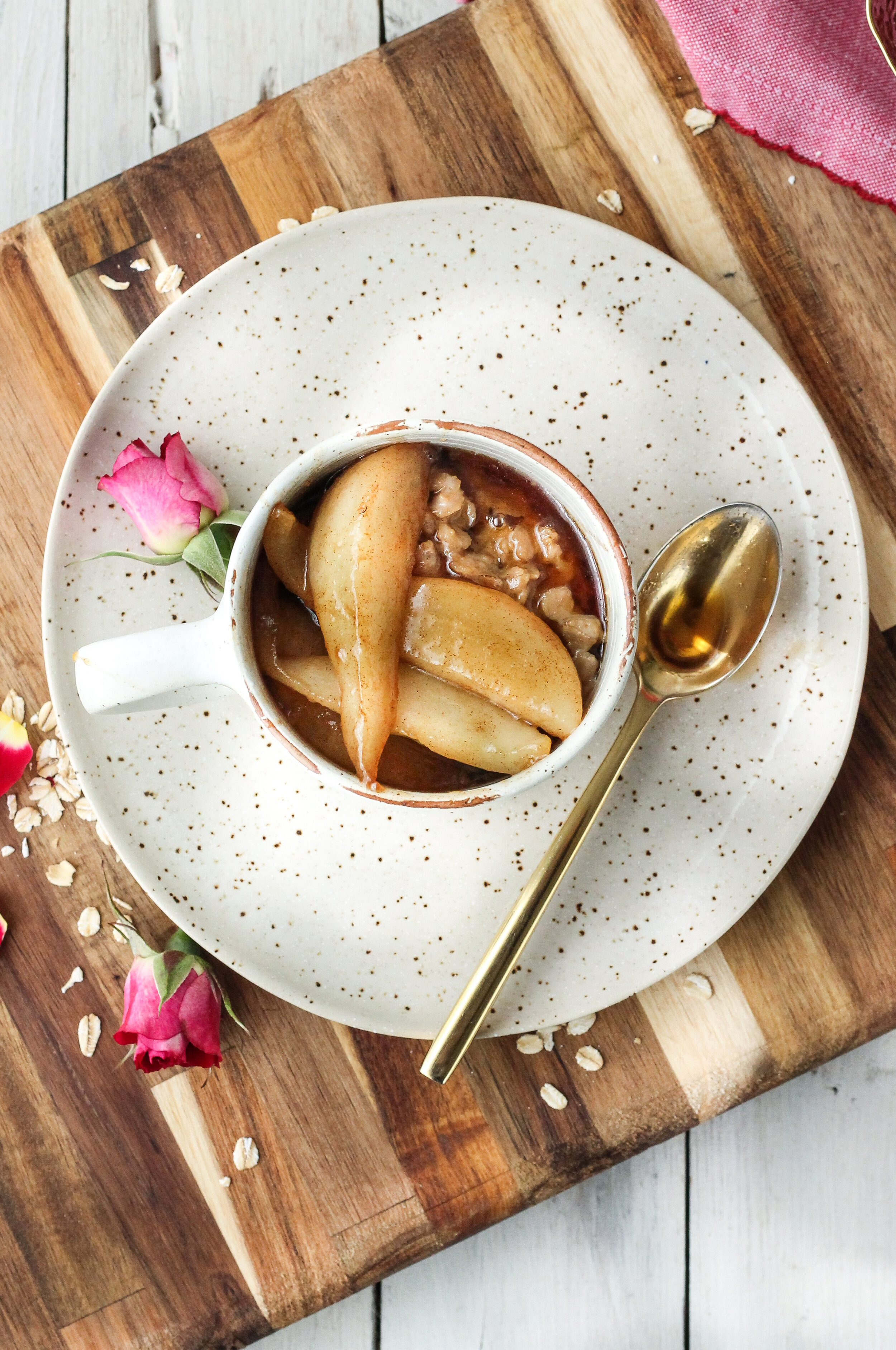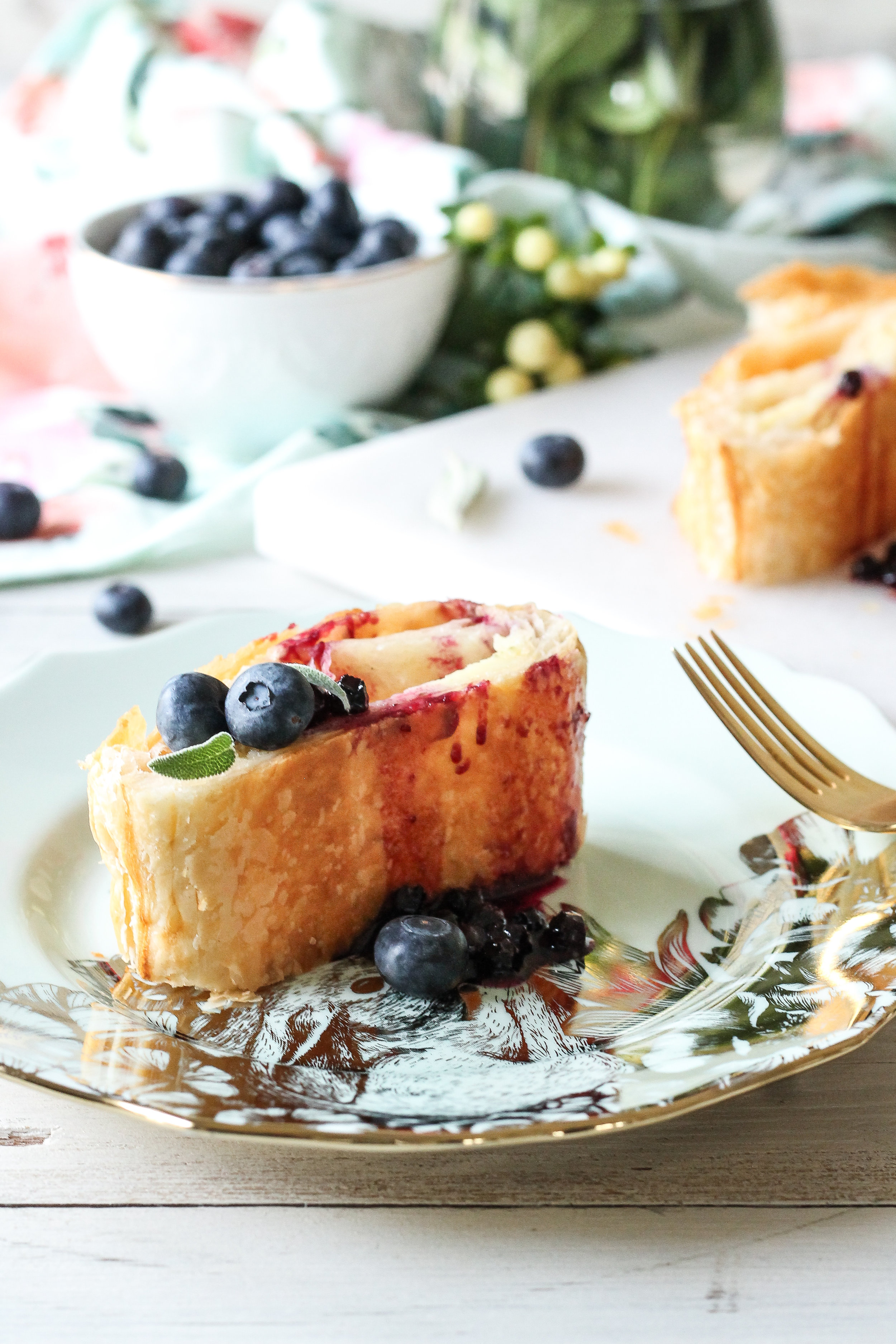Let's talk for a moment. Some days I discover new recipes by pulling out my scribbled notebook where I've darted down several dozen ideas, selecting one, refining it, and then going to the store for ingredients in the early hours of the morning. I nod with respect to the dozens of young moms in workout clothes, but with my baguette in one arm and a bouquet of flowers in the other, we both know I am having more fun.
I come home and make the well-planned recipe, photograph it, and spend the following hour and a half cleaning up. Thus goes a standard "shoot day."
Other times, I am not testing or experimenting. I am off the clock. It's a Thursday afternoon and I've got a pan of yeasty rolls baking in the oven. As I wash the dishes a basket of wilting peaches catches my eye. They were bought under-ripe and underwent the transformation from rocks to mushy, shriveling spheres of doom. I shook my head in dismay and regret and proceeded to gather them, anticipating a grim journey to the trash can, when I remembered a container of strawberries in a similar condition. Next to the strawberries was half of a bowl of chopped mango, probably leftover from a weekend breakfast.
The rolls were beginning to scent the entirety of Norwyk Manor and I was contemplating toppings with which to smother them.
In one quick swoop of inspiration, I peeled the compost-destined peaches, hulled the strawberries and retrieved the mango. I decided that if my results were horrible, I was really only out a cup or two of sugar. But, if it was good, I would have found a more than decent use for my neglected produce.
Though a delicious recipe is undeniably satisfying no matter if it came from my scribblings or a desire to save myself from throwing away produce, there is an especially strong element of delight derived from those "necessity is the mother of invention" moments.
The jam was stellar. The overly ripe fruit packed more flavor than delicate, just ripened specimens ever could. The sugars were high and the flavor strong.
It tasted of summer. Within a few moments the chunks of mushy fruit were transformed into a thick, spreadable jam that made even those rolls - which were, quite frankly, less than perfect - seem heavenly.
It was an afternoon well spent. Sometimes creativity blooms best when it is unintentionally planted.
This spontaneously born jam was so delicious, in fact, that I had to recreate for the following week's "shoot day." Of course, the second batch was not nearly as good. The peaches were far too firm and pretty and the strawberries not quite past their prime. Truly, when it comes to jam, the ugly fruit will deliver the best results.
While I did portion this sweet medley into jars, canning seemed a bit wasteful. This recipe produces enough jam for a couple batches of biscuits, but not quite enough to justify the whole canning rigmarole.
If you happen to have a bushel of shriveling peaches lying about and are feeling industrious, you can certainly double or triple the ratios.
But for now, let's just spread another spoonful of summer on that biscuit, shall we?
Sincerely,
Pedantic Foodie
Strawberry Peach Mango Jam
makes about 1 quart
Cook's Note: This jam will be best when made with the ripest fruit possible - not spoiled, but close to it. It is the perfect way to use "ugly fruit" - i.e. bruised, somewhat shriveled specimens. The fruit will be at its sweetest and most flavorful stage when it looks a little too ripe for out-of-hand eating.
- 4 medium ripe, yellow peaches, peeled* and halved
- 3 cups fresh strawberries, hulled and halved (about 1 quart)
- 1 ripe mango, cut into cubes
- 1 1/2 cups sugar**
- 1/3 cup water
*Cook's Note: If your peaches are very ripe, a vegetable peeler will do the job nicely, however, if your peaches are still somewhat firm, or you are working with larger quantities, feel free to use the blanching method - it's a breeze and soooo satisfying.
**Cook's Note: You may not wish to use the entire 1 1/2 cups of sugar. This ratio is based on fruit that is a little less than ideal. If your fruit is very sweet, you may be able to reduce the amount to 1 cup. Feel free to begin with 1 cup (no less though) and add the additional sugar towards the end of the cooking process, after you have been able to taste the mixture and gauge its sweetness.
Select a heavy bottomed, 3-quart saucepan and add prepared fruit, sugar, and water. Place over medium high heat and bring to a soft boil. Once boiling, reduce the heat to medium and cook for 15-20 minutes, until the fruit is very soft.
Remove the pan from the heat and allow it to cease boiling and cool just slightly. Using an immersion or stand blender, puree the fruit mixture until very smooth.
Return the puree to the pot and place over medium heat. If the jam appears to be getting too hot and is popping or splattering, you may need to reduce the heat to low. Cook, stirring often, until thick - about 15-20 minutes. Remove from heat and allow to cool to room temperature. The jam will thicken further as it cools.
Transfer to jars or airtight containers and store in the refrigerator for several weeks. Enjoy!!
Serving suggestion: My most favorite biscuits.























